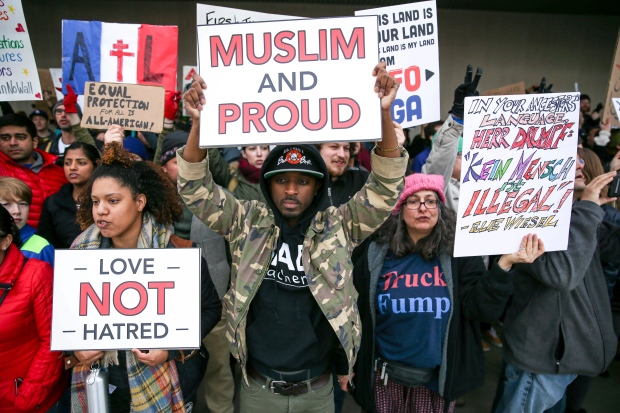Trump Ban Will Not Make U.S. Safe From Terror
Last week, President Donald Trump expanded the existing travel ban to include three more countries: Chad, North Korea and Venezuela. That makes a total of eight countries whose citizens are now indefinitely barred from traveling to and from the United States.
In a city like Berkeley that is home to many international students, researchers and faculty, the travel ban has serious implications. According to a recent article by the Daily Cal, more than 100 students, faculty and their dependents are impacted by the ban, meaning that if they travel home to visit family, they may not be allowed back into the country.
This ban is the wrong approach toward increasing security and unfairly discriminates people based on their country of origin. It also, in many instances, has no correlation between countries with the greatest number of incidents of terrorism and their inclusion on the list, according to the Washington Post. For example, Afghanistan, India, Pakistan and the Philippines all had more acts of terrorism in 2016, yet do not appear on the list. But Somalia, Yemen and Syria, all predominately Muslim countries, are. It makes no sense.
Not only is the ban discriminatory, it’s a slap in the face to the hardworking immigrants from the countries mentioned on the list who are peaceful and law abiding people. This ban – whose constitutionality will soon be considered by the U.S. Supreme Court – is the wrong approach to protecting our country and only reinforces negative stereotypes of Muslims as violence-prone and increases feelings of hostility toward non-European foreigners. It also runs totally opposite to the values of inclusivity and multiculturalism our residents hold dear.
I’m hopeful that the U.S. Supreme Court will soon rescind this ban, which does nothing to increase our communities’ safety. We all want to protect our great country, but a haphazard bill that targets people who are already vulnerable to hate attacks, is not the right approach. Instead of treating foreigners like would-be criminals, we need to welcome people to our country, help them integrate as quickly as possible and become productive residents.
I also urge you to donate to and volunteer for organizations supporting immigrants and refugees. Berkeley is proud of its sanctuary city status and we will always remain a refuge for people from all corners of the world.
What can we do to help recent immigrants and visitors from countries on the ban feel more included in our community?
